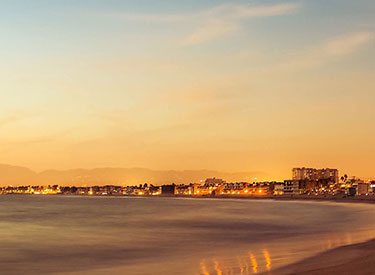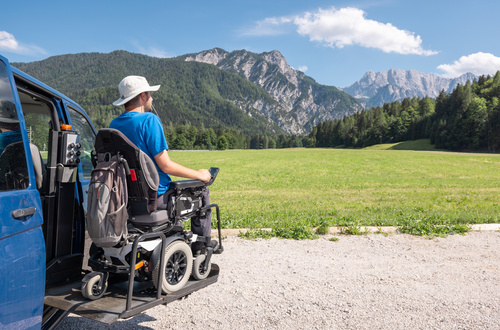


If you or a loved one is among the approximately twenty percent of Australia’s population that lives with either a visible disability or a hidden disability such as autism, anxiety, impaired vision or hearing, chronic pain or dementia, planning a holiday can come with unique challenges.
Here are our top tips for planning a great holiday for families with disabilities:
A vital first step is to seek out a personal travel manager who specialises in accessible and inclusive travel and is experienced in determining and supporting your family’s specific needs. Whether it’s making provision for mobility aids and medical equipment for someone with a physical disability, or incorporating regular downtime for a neurodiverse family member into your itinerary, these are the details that will ensure that your holiday experience is enjoyable for the entire family.
Make a list of the details that are important for your personal travel manager to know: for example, if a wheelchair user, you would specify the type of wheelchair, whether it is powered or manual, if it is collapsible and what kind of battery it uses. Be sure to include any other medical conditions that may require special consideration, including necessary equipment such as hoists or supplementary oxygen. Providing this information well in advance will ensure that suitable arrangements are in place when your holiday begins.
Your personal travel manager will need to advise airlines of any disabilities for which your group may need appropriate support. If you’re planning a cruise or resort holiday, they can help you to identify which kids’ clubs have staff that are trained to cater to any unique needs your children may have, and alert them to any additional requirements you might have in advance. They can also help you identify which attractions and tourism operators have given serious thought to incorporating accessible tourism into their experiences, whether it’s by providing free wheelchairs, installing ramps and accessible bathrooms, or creating low-sensory visiting hours.
Find out what’s locally available to support your family’s disabilities and prepare a packing list that addresses any shortcomings. Whether its replacement batteries for a particular type of hearing aid, specific medical provisions or your assistance dog’s preferred food, ensure that you have more than sufficient supplies for the duration of your holiday if it’s likely to be difficult to source at your destination.
Ask your personal travel manager to find out what assistance you can expect during your holiday, especially if you are travelling internationally. Accessible and inclusive tourism is still very much a work in progress, but many major attractions and tourism businesses are now offering programs designed to appeal to a wider market and ensure that families with disabilities have a wonderful time. If you’re travelling to the United States, you can download a card that will identify your needs to airport security officials and may help to smooth your path through the often lengthy and intense security and immigration processes.
Space is an important consideration when planning for an enjoyable holiday, whether it’s to accommodate a wheelchair or mobility scooter, a service dog or medical equipment, or to provide a neuro-diverse family member with a quiet area in which to unwind. If a family member has mobility issues that require a hoist, you will need to understand what clearance is needed both around the bed and below the bed to ensure that the hoist can be used. Looking for accommodation that offers open park space nearby, opting for larger, wheelchair-accessible hotel rooms or self-contained accommodation and considering an upgrade to more spacious seating on planes can also contribute to increased enjoyment for all.
Visual resources such as social stories and picture calendars can be helpful in preparing neurodiverse family members for aspects of their holiday where they may be at risk of experiencing overwhelm. Airports and train stations are examples of places where they are more likely to experience sensory triggers, but some, such as Melbourne Airport, offer easy access to a wide range of fantastic online resources in the form of sensory maps and social stories.
If you’re travelling with someone who’s neurodiverse, preparing them for the novel experiences and unfamiliar routines they may face on their holiday can also be helpful. This could be as simple as involving them in packing their toothbrush and other toiletries in a toilet bag, sleeping in an unfamiliar bed, or choosing their clothes out of a suitcase, during the days or weeks leading up to their holiday.
The “Sunflower” program is a global initiative that is supported by an ever-growing list of airports, airlines, tourism attractions and accommodation providers around the world. Staff is trained to recognise the program’s signature sunflower lanyards, pins and bracelets, which alert them that someone in your party has a hidden disability and may require additional understanding, time and support.
If you are thinking of using your NDIS (National Disability Insurance Scheme) plan to assist with disability requirements while on holiday you should be aware that, as a rule of thumb, the NDIS does not cover any costs that a non-disabled person would pay for, such as flights and accommodation. The situation becomes less clear when it comes to additional costs associated with supporting a person’s disability, such as equipment hire or taking a support worker with you. For this reason, it’s essential that you check what is and isn’t covered with your Support Coordinator before you begin planning your holiday.
Speak to a personal travel manager who understands and specialises in accessible travel.